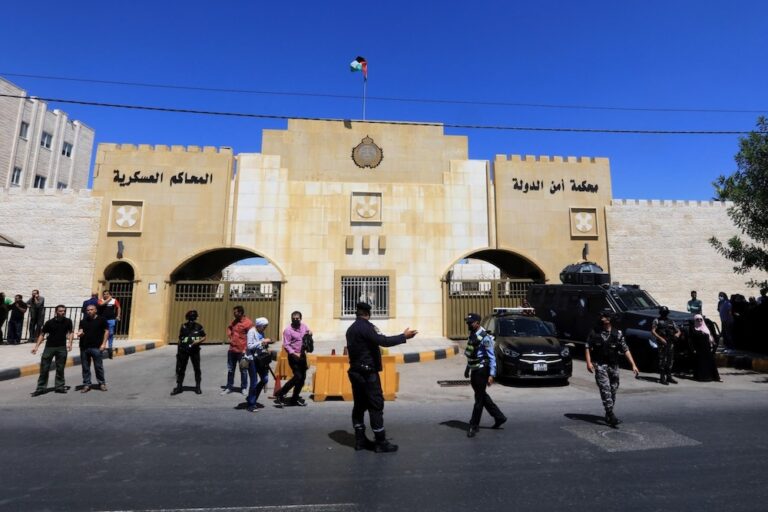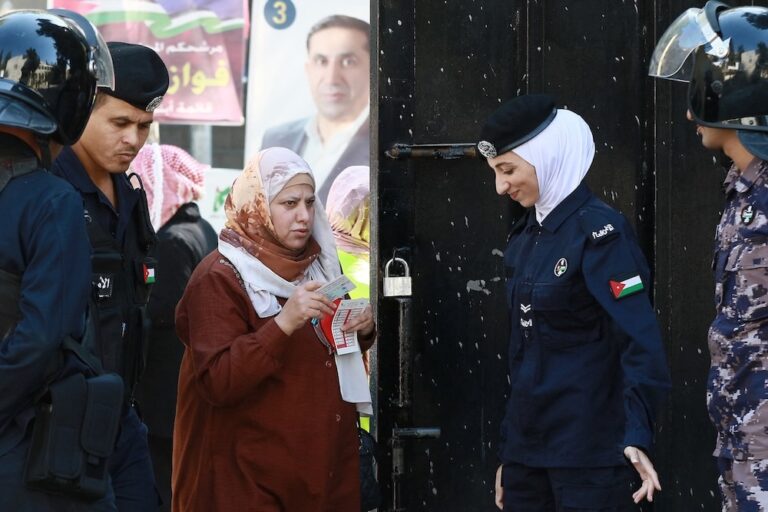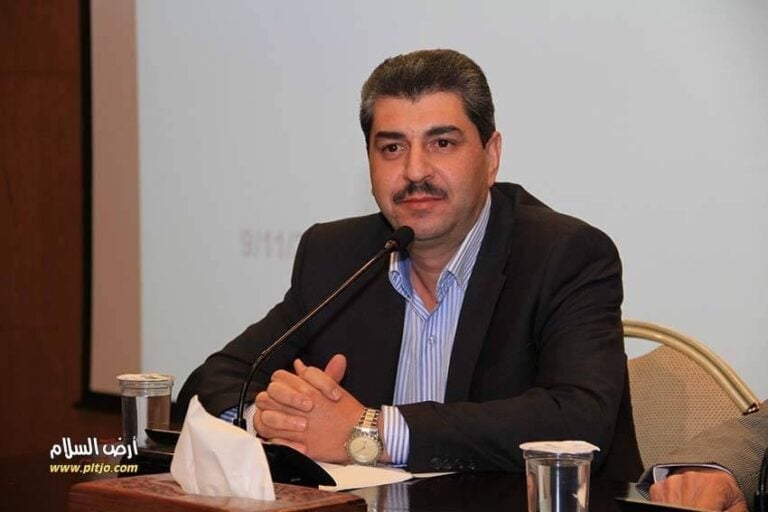(RSF/IFEX) – In a letter to King Abdallah, RSF protested the current amendments to the penal code. “We bitterly regret that the war against terrorism is used as an excuse for such decisions,” said Robert Ménard, the organisation’s secretary-general. “Under the pretext that international opinion is focused on the United States’ strikes in Afghanistan, the […]
(RSF/IFEX) – In a letter to King Abdallah, RSF protested the current amendments to the penal code. “We bitterly regret that the war against terrorism is used as an excuse for such decisions,” said Robert Ménard, the organisation’s secretary-general. “Under the pretext that international opinion is focused on the United States’ strikes in Afghanistan, the Jordanian governement is taking advantage of the situation to adopt restrictive measures against the press. Yet, in 2000, Jordan was considered to be one of the Arab countries with the most press freedom,” he added.
According to information collected by RSF, restrictive measures were adopted against the press, “as part of the anti-terrorist campaign,” on 9 October 2001. “Our penal code does not cover all the current needs and amendments will be introduced in order to deal with these issues, meaning how to deal with terrorist acts and punish them,” said Prime Minister Ali Abou Ragheb. These measures provide for the “temporary or permanent” closure of newspapers in case they publish news that is “defamatory, false, harmful to national unity or the state’s reputation, or incites to strike, hold illegal public meetings or disturb public order.” At the same time, sentences for “insulting the royal couple” and “the crown prince” are being reinforced. These offences are now punishable by sentences ranging from one to three years in jail. Previously, the penalty was limited to a fine. The 1999 amendments to the penal code put an end to the penalty of closing newspapers in Jordan.


